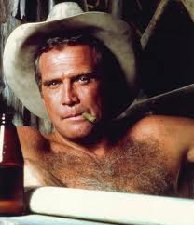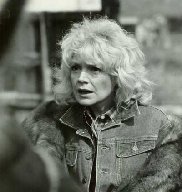West Virginia is a state in the Southern and Mid-Atlantic regions of the United States. It is bordered by Pennsylvania to the north and east, Maryland to the east and northeast, Virginia to the southeast, Kentucky to the southwest, and Ohio to the northwest. West Virginia is the 10th-smallest state by area and ranks as the 12th-least populous state, with a population of 1,793,716 residents. The capital and most populous city is Charleston with a population of 49,055.
^Charleston
West Virginia was admitted to the Union on June 20, 1863, and was a key border state during the American Civil War. It was the only state to form by separating from a Confederate state, one of two states (along with Nevada) admitted to the Union during the Civil War, and the second state to separate from another state, after Maine separated from Massachusetts in 1820. Some of its residents held slaves, but most were yeoman farmers, and the delegates provided for the gradual abolition of slavery in the new state constitution. The state legislature abolished slavery in the state, and at the same time ratified the 13th Amendment abolishing slavery nationally on February 3, 1865.
West Virginia's northern panhandle extends adjacent to Pennsylvania and Ohio to form a tristate area, with Wheeling, Weirton, and Morgantown just across the border from the Pittsburgh metropolitan area. Huntington in the southwest is close to Ohio and Kentucky, while Martinsburg and Harpers Ferry in the eastern panhandle region are considered part of the Washington metropolitan area, between Maryland and Virginia. West Virginia is often included in several U.S. geographical regions, including the Mid-Atlantic, the Upland South, and the Southeastern United States. It is the only state entirely within the area served by the Appalachian Regional Commission; the area is commonly defined as "Appalachia".
The state is noted for its mountains and rolling hills, its historically significant coal mining and logging industries, and its political and labor history. It is also known for its tourism and a wide range of outdoor recreational opportunities, including skiing, whitewater rafting, fishing, hiking, backpacking, mountain biking, rock climbing, and hunting. From the Great Depression to the 1990s, the state voted heavily for the Democratic Party due to its tradition of union-based politics. Since then, the state has become heavily Republican, and is considered a "deep red" state at the federal level.
Other nominated names for the state included Vandalia, Kanawha, Appalachia, and Western Virginia. The capital was originally Wheeling, before switching to Charleston, moving back to Wheeling, and finally back to Charleston. The first governor was Arthur Boreman.
The area now identified as West Virginia was contested territory among Anglo-Americans as well, with the colonies of Pennsylvania and Virginia claiming territorial rights under their colonial charters to this area before the American Revolutionary War. Some speculative land companies, such as the Vandalia Company,[12] the Ohio Company and the Indiana Company, tried but failed to legitimize their claims to land in parts of West Virginia and present-day Kentucky. This rivalry resulted in some settlers petitioning the Continental Congress to create a new territory called Westsylvania. With the federal settlement of the Pennsylvania and Virginia border dispute, creating Kentucky County, Virginia, Kentuckians "were satisfied and the inhabitants of a large part of West Virginia were grateful."
West Virginia was the only state in the Union to separate from a Confederate state (Virginia) during the Civil War. In Richmond on April 17, 1861, the Virginia Secession Convention of 1861 voted to secede from the Union, but of the 49 delegates from the northwestern corner (which ultimately became West Virginia) only 17 voted in favor of the Ordinance of Secession, while 30 voted against (with two abstentions). Almost immediately after that vote, a mass meeting at Clarksburg recommended that each county in northwestern Virginia send delegates to a convention to meet in Wheeling on May 13, 1861. When this First Wheeling Convention met, 425 delegates from 25 counties were present, though more than one-third of the delegates were from the northern panhandle area. Soon there was a division of sentiment.
On May 13, 1862, the state legislature of the reorganized government approved the formation of the new state. An application for admission to the Union was made to Congress, introduced by Senator Waitman Willey of the Restored Government of Virginia. Carlile sought to sabotage the bill, first trying to expand the new state's boundaries to include the Shenandoah Valley, and then to defeat the Willey amendment at home. On December 31, 1862, President Abraham Lincoln approved an enabling act admitting West Virginia on the condition that a provision for the gradual abolition of slavery be inserted in its constitution (as Battelle had urged in the Wheeling Intelligencer and also written to Lincoln). While many felt West Virginia's admission as a state was both illegal and unconstitutional, Lincoln issued his Opinion on the Admission of West Virginia finding that "the body which consents to the admission of West Virginia is the Legislature of Virginia", and that its admission was therefore both constitutional and expedient.
If you want to read a whole lot more, go here:https://en.wikipedia.org/wiki/West_Virginia
- SERVES
- 4
- COOK TIME
- 10 Min
We paired two American favorites to make one outrageously good summer recipe. Our Mac & Cheese Burger is a big juicy burger that's topped with lettuce, pickles, bacon, and...macaroni and cheese! Make these burgers at your next cookout and we're sure you'll have the most interesting burgers on the block!
- 1 1/4 pound ground chuck
- 1 tablespoon steak sauce
- 1/2 teaspoon salt
- 1/2 teaspoon black pepper
- 1 (12-ounce) container frozen macaroni and cheese
- 4 hamburger rolls
- Lettuce for garnish
- Pickle chips for garnish
- 4 strips bacon, cooked until crispy, cut in half
- Preheat a grill or a grill pan to medium-high heat.
- In a medium bowl, combine beef, steak sauce, salt, and pepper; mix well. Form meat mixture into 4 equal patties.
- Prepare macaroni and cheese according to package directions, set aside. Meanwhile, cook burgers 8 to 12 minutes or until desired doneness, turning halfway through.
- Place lettuce on rolls, top with burgers, macaroni and cheese, pickles and bacon. Serve immediately.
Each year on April 23rd, National Lost Dog Awareness Day increases awareness concerning missing dogs and celebrates reunions.
Through networks of shelters, veterinaries, social media, and other media sources, many lost canines and families reunite. The day is an opportunity to learn more about prevention and networking. There are also steps to take to prevent your family pet from going missing. Some of these preventative steps also help return Fido to you if he does go missing.
Preventative steps to take:
- Keep your dog secure. Whether on a leash or in a fenced yard, your dog is less likely to wander if it is secured.
- Training is valuable. Dogs who have been trained by a professional are less likely to go missing. Most importantly, they learn recall commands. Formal obedience training also offers owners valuable information that can lead to a better relationship between pet and owner.
- Always supervise your animal. Dogs, especially expensive purebreds, can be stolen even from a fenced yard.
- Tags and microchipping help with the recovery of a missing animal. These steps must be completed when you first receive your new family member. While tags are an inexpensive way to protect your pet, dogs can slip a collar. Many pet adoption sites will hold microchipping events for a fraction of the cost. The price is coming down all the time, too. It is essential to keep the information on the microchip or tag up to date also. It is only as useful as the information listed on the chip in helping recover your pet.
- Spaying and neutering reduce your pet’s likelihood of wandering off in search of a mate. Additionally, it eliminates the chances of unwanted offspring should your dog wander off unexpectedly.
- Keep records up to date on your animals. That includes photos, vaccinations, and those valuable tags and microchips, too.
Taking action if your pet goes missing:
- Contact your local shelters and vets. Please provide them with current information regarding your dog, including a color photograph.
- Walk your neighborhood. Let your neighbors know as you search. Enlist their help, too.
- Post notices in neighborhood grocery stores, gas stations, and coffee shops. Go to social media and post your pet’s info in local community forums.
- Check advertising websites. If your dog was stolen, you might recognize the description from the ad. Contact the police if you think your dog was stolen.
HOW TO OBSERVE
Take steps to protect your pet. Develop a plan.
NATIONAL LOST DOG AWARENESS DAY HISTORY
Lost Dogs Illinois and Lost Dogs Wisconsin directors Susan Taney and Kathy Pobloskie created National Lost Dog Awareness Day in 2014 to increase awareness and help prevent animals from going missing. They also promote celebrating reunions.





















No comments:
Post a Comment